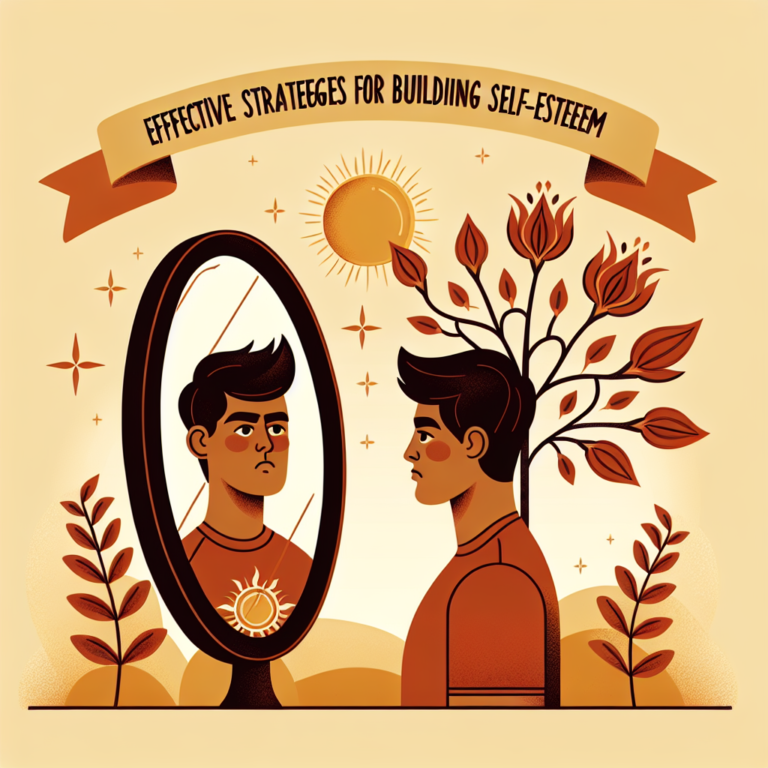
Mastering Emotional Intelligence: Everyday Habits for a More Empathetic You
Introduction
Imagine walking into a bustling café, your senses bombarded by the aroma of freshly brewed coffee and the hum of lively conversation. Laughter rings from one table, while a hushed tone emanates from another. In such rich environments, the ability to sense and respond to the myriad emotions swirling around you can seem almost superhuman. Yet, mastering emotional intelligence isn’t a distant fantasy; it’s a skill that anyone can develop through consistent and mindful practice.
In this article, we will explore mastering emotional intelligence: everyday habits for a more empathetic you. As the world becomes increasingly interconnected, emotional intelligence (EI) has emerged as a crucial skill for personal and professional success. Whether you are a leader navigating a team, a friend supporting a loved one, or an individual striving for personal growth, recognizing and harnessing the power of your emotions—and those around you—can transform the way you interact with the world.
So, how can you develop these skills? This article will guide you through practical habits that can cultivate your emotional intelligence and deepen your empathy, ultimately leading to more fulfilling relationships and a more compassionate life.
The Foundations of Emotional Intelligence
Before diving into the everyday habits that will help you master emotional intelligence, let’s clarify what EI entails. Emotional intelligence is broadly defined as the ability to recognize, understand, and manage your own emotions while also recognizing, understanding, and influencing the emotions of others. Mastering emotional intelligence: everyday habits for a more empathetic you begins with understanding its five core components:
- Self-awareness: The ability to recognize and understand your own emotions.
- Self-regulation: The ability to manage your impulses and emotions healthily and positively.
- Motivation: A passion for your work and an intrinsic desire to meet personal and professional goals.
- Empathy: The ability to understand and share the feelings of others.
- Social skills: Proficiency in managing relationships and building networks.
Case Study: The Transformative Power of Emotional Intelligence
Consider the story of Satya Nadella, CEO of Microsoft. Under his leadership, Microsoft’s workplace culture underwent a massive transformation, embracing empathy as a cornerstone of their operational strategy. Nadella emphasized a growth mindset—a crucial component of emotional intelligence—allowing employees to innovate and collaborate more effectively. This strategic focus not only improved employee morale but also propelled Microsoft’s financial growth into new heights.
The case of Microsoft illustrates the profound impact that emotional intelligence can have on organizational success, revealing how mastering emotional intelligence: everyday habits for a more empathetic you can lead both individuals and organizations toward greater achievements.
Building Everyday Habits for a More Empathetic You
Creating new habits can feel daunting, but with determination and consistency, ordinary practices can lead to extraordinary changes in your emotional intelligence. Here are some everyday habits to consider:
1. Daily Reflection
Time Allocation: 10-15 minutes daily
Taking a few moments each day for reflection can significantly enhance your self-awareness. Consider keeping a journal where you log your emotions, reactions, and interactions. Reflect on questions like:
- What emotions did I feel today?
- How did these emotions affect my behavior?
- Did I display empathy toward others? How?
By making daily reflection a habit, you’re actively engaging in mastering emotional intelligence: everyday habits for a more empathetic you.
| Chart: Emotions Logged Over a Week | Day | Emotion | Trigger | Response Type |
|---|---|---|---|---|
| Monday | Frustration | Missed deadline | Irritable | |
| Tuesday | Happiness | Positive feedback | Engaging | |
| Wednesday | Sadness | Friend’s distress | Supportive | |
| Thursday | Surprise | Unexpected news | Curious | |
| Friday | Contentment | Completed project | Celebratory |
2. Mindfulness Practices
Mindfulness helps you remain present and non-judgmental towards your emotions and those around you. Integrating mindfulness practices into your routine can significantly raise your emotional intelligence.
Practice Suggestions:
- Meditation: Spend 5-10 minutes meditating every morning.
- Deep Breathing: Use this technique when encountering stress to better manage your responses.
- Mindful Listening: Engage fully when others speak without interrupting or planning your response beforehand.
These practices align perfectly with mastering emotional intelligence: everyday habits for a more empathetic you by fostering patience and understanding.
3. Engage in Emotional Check-Ins
Checking in with yourself and with others about emotions can nurture a more empathetic environment. Try setting up regular emotional check-ins with family, friends, or coworkers.
Example Questions:
- How are you feeling today?
- Is there anything on your mind you’d like to share?
- What can I do to support you better?
By proactively creating opportunities for emotional exchanges, you enhance your empathy while modeling emotional intelligence for those around you.
4. Read Literature or Watch Films Rich in Emotion
Engaging with stories—whether through literature or film—can deepen your understanding of different emotional experiences.
Benefits:
- Enhances empathy by presenting diverse perspectives.
- Encourages reflection on emotional responses (yours and characters’).
Consider classics like “To Kill a Mockingbird” or recent films like “A Beautiful Day in the Neighborhood.”
5. Seek Feedback on Your Interactions
Asking others how they perceive your emotional responses can be a humbling yet enlightening practice. This habit fosters self-regulation and allows you to identify areas for growth.
Action Steps:
- Request feedback from trusted friends or colleagues after significant interactions.
- Reflect on their insights and identify constructive ways to adjust your approach.
By doing this, you align with mastering emotional intelligence: everyday habits for a more empathetic you, showing a commitment to continual improvement.
The Ripple Effect of Emotional Intelligence
The widespread impact of mastering emotional intelligence can be seen across various spheres of life—personal relationships, workplaces, and broader communities.
Case Study: The Effects of EI in Education
A 2011 study conducted in schools showed that students with higher emotional intelligence performed better academically and exhibited better social skills compared to their peers. By integrating EI into their growth, the initiative created an environment where both students and teachers flourished.
This example illustrates how mastering emotional intelligence is not only beneficial on an individual level but can transform entire communities.
The Link Between Emotional Intelligence and Leadership
In today’s workplaces, emotional intelligence is increasingly recognized as an essential component of effective leadership. A 2019 Harvard Business Review article noted that leaders with high emotional intelligence create more engaging and productive teams.
| Table: Emotional Intelligence vs. Traditional Leadership Skills | Skill Type | Emotional Intelligence | Traditional Skills |
|---|---|---|---|
| Understanding Team Needs | High | Moderate | |
| Conflict Resolution | Proficient | Reactive | |
| Vision Setting | Empathetic | Authoritative | |
| Communication | Clear and relatable | Directive |
This table underscores the necessity of mastering emotional intelligence: everyday habits for a more empathetic you in ensuring effective leadership and dynamic team engagement.
Conclusion
As we’ve explored throughout this article, mastering emotional intelligence: everyday habits for a more empathetic you is not merely a lofty goal. It’s an achievable pursuit that requires consistent effort and reflection. By integrating daily practices like mindful reflection, emotional check-ins, and feedback into your life, you can cultivate a deeper understanding of emotions—both your own and those of others.
The journey towards greater emotional intelligence will not only enhance your interpersonal relationships but will also shape your professional interactions, fostering a more compassionate and empathetic world.
FAQs
1. What is emotional intelligence?
Emotional intelligence encompasses the ability to recognize, understand, and manage emotions in yourself and others, which impacts communication, relationships, and decision-making.
2. How can improving my emotional intelligence benefit my career?
High emotional intelligence can enhance your leadership skills, improve teamwork, and lead to better relationships with colleagues, ultimately advancing your career prospects.
3. Are there specific exercises to improve emotional intelligence?
Yes, daily reflection, mindfulness practices, emotional check-ins, and seeking feedback are practical exercises that can enhance emotional intelligence.
4. How do I know if I am emotionally intelligent?
You can gauge your emotional intelligence through self-awareness assessments, asking for feedback from others, and observing how effectively you manage relationships and conflict.
5. Is emotional intelligence innate, or can it be developed?
While some individuals may naturally possess certain aspects of emotional intelligence, it is largely a skill that can be developed and enhanced through practice and experience.
By embracing the practices outlined in this article, you are well on your way to mastering emotional intelligence and becoming a more empathetic individual in everyday life. So, take that first step today, and watch as your relationships and interactions flourish!

















